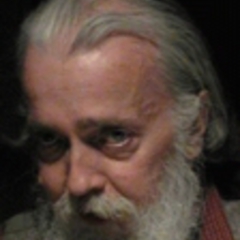"The West" probably lost awareness of the most mind-altering substances in a gradual process parallel to the diffusion of christianity. Wine is sacramentalized, and its dionysan potential remains both as magic (in the Mass) and "Some Function" (e.q. Rabelais) - for no culture can persist without an opening towards non-ordinary conciousness (if all else is forbidden there's always mass psychosis!). Come to think of it, Rabelais still knew the secret of hemp. The Soma Function (i.e. Transformation through ingestion of entheogens) is still not quite erased even in the High Middle Ages. Porbably the ocultation climaxes with Industrialization & the sneaking substitution of machinic for organic space as a principle of psychic ordering. Victorian puritanism & Imperialism represent the public repression of the unconscious by a rigid soceity based on a mind/machine model (the isolate & commanding cogito).
At this very moment, of course, entheogenesis "re-appears" (laudarium, hashish) in the West as a (sub)culture, as "occult history". Nothing but the violence of Law can even pretend to suppress it - but Law itself is machine-law, clockwork, unable to contain the fluidity of the organic. Thus public discourse will approach breakdown over the question of consciousness ("war on drugs"). Each refinement in machine consciousness will evoke a dialectical response, so to speak, from the organic realm. Around mid 20th century, technology begins to shift away from an imperial-gigantic frame to a more "inward" dimension - the "splitting of the atom", the virtual space of communications and the computer; around the same time the really serious psychedelics begin to show up - mescaline, psyloscibe, LSD, DMT, ketamine, MDMA, etc.
The "paradigm war" that now breaks out is one measure of an antagonism between "cyberspace" and "neurospace", but the relation cannot be simply vulgarized as a dichotomy. Complexity theory (and "taoist dialectics") demand a far more baroque and twisted model, including both complementarity & polarity. The latest developments in machine consciousness have a "Deleuze-Guattarian" aspect of subversion (e.q. internet) with a certain psychedelic flavor; while "drugs" are produced out of a "second nature" that is nothing if not machinic. However, an oppositional aspect also appears, a "second Psychedelic Revolution", a dialectic of re-embodiment ("neurospace") as opposed to the tendency toward false transcendence & disembodiment in "cyberspace".
One of the great "rediscoveries" of this New Entheogenesis is the dialectical nature of ayahuasca or yage, that is, that organic DMT can be "realized" in combination with an MAO-inhibitor like harmine; and that plant-sourses for these two substances are globally diffused, widespread to the point of ubiquity, impossible to control, and free. Preparations require only low kitchen tech. Neo-ayahuasca, unlike computer technology, is not a "part" of capitalism or any other ideology control-system. Is it even fair to make this comparison? Yes, to the extent tant entheogenesis & cybertech are both concerned with information & therefore with epistemology; in fact we could call botj of them "gnostic systems", both implicated in the goal of knowing that emerges from the gulf that seems to seperate mind/soul/spirit from body. The entheogenic version of this knowing however implies enlarging the definition of the body to include "neurospace", while the cybernetic version implies the disappearance of the body into information, the "downloading of the consciousness". These are both absurd extremes, images rather then political situations; - they are also potent myths. We need a politique here, not an ideology but an active cognizance of actually-persisting situations (as clearly as we can grasp them) & a strategic sense of where to apply the nudges of our material art. Neuro-hackers vs the New World Order? Well, it's a nice idea for a science-fiction novel...

